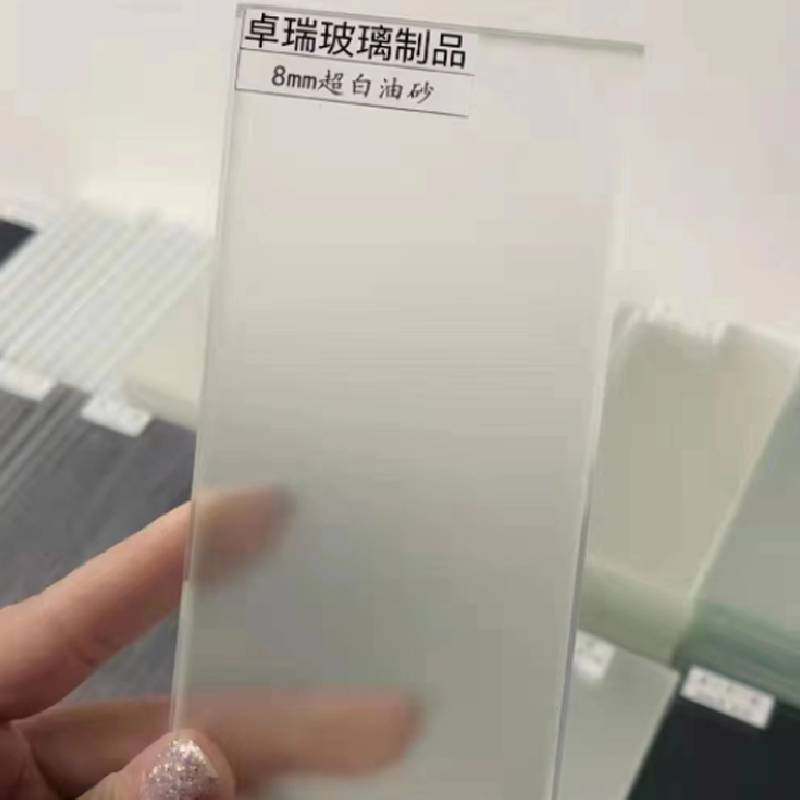The Significance of Float Glass Factories in Modern Industry
Float glass, a fundamental material widely used in construction, automotive, and a variety of decorative applications, is produced through an innovative manufacturing process that has revolutionized the glass industry. The float glass factory, the heart of this production, plays a crucial role in meeting the growing demands for high-quality glass products in today's world.
The Float Glass Process
The float glass manufacturing process, developed in the mid-20th century, involves floating molten glass on a bed of molten tin. This method produces glass sheets that are remarkably flat and uniform in thickness. The process begins with the selection of raw materials silica sand, soda ash, and limestone, which are carefully mixed and melted at high temperatures, reaching around 1,600 degrees Celsius.
Once the glass is molten, it is introduced to the tin bath where it spreads out and forms a flat surface. The tin plays a significant role in the cooling process, allowing the glass to gain its desired smoothness and clarity. After floating, the glass is gradually cooled in a lehr, a controlled environment that minimizes internal stresses and ensures durability. Finally, the sheets are cut to size, packaged, and prepared for shipment to various industries.
Equipment and Technology
Modern float glass factories are equipped with advanced technology and machinery that enhance the efficiency and quality of production. Automation and computerization play vital roles in monitoring temperatures, chemical compositions, and the cutting processes. Robotic systems handle the glass sheets with precision, minimizing the risk of damage.
Environmental considerations are increasingly becoming a priority. Many float glass factories have implemented measures to reduce waste, recycle materials, and lower energy consumption. Advances in technology enable factories to utilize renewable energy sources, such as solar power, to operate their facilities more sustainably.
float glass factory
Applications of Float Glass
Float glass is indispensable in numerous applications. In the construction industry, it is used for windows, facades, and glass doors, allowing natural light to enter buildings while providing thermal insulation and security. In the automotive sector, float glass is employed for windshields and side windows, ensuring visibility and safety for drivers and passengers.
Moreover, float glass has found its way into decorative applications. Its aesthetic appeal and versatility make it suitable for mirrors, glass tables, and decorative panels. With advancements in coating technologies, float glass can also be modified to enhance properties such as solar control and low emissivity, further expanding its range of applications.
Economic Impact
The float glass industry significantly contributes to the global economy. As urbanization continues to rise, the demand for float glass is expected to grow, leading to job creation in manufacturing and associated sectors. Countries investing in infrastructure development require vast amounts of float glass, driving both local and international trade.
Additionally, float glass factories often collaborate with research institutions to innovate new products and improve existing ones. This synergy leads to the development of specialized glass types, such as self-cleaning glass or glass with enhanced thermal insulation, meeting specific market needs.
Conclusion
In conclusion, float glass factories are vital contributors to modern industry, providing essential materials that shape our built environment. The innovative processes employed in these factories not only produce high-quality glass but also reflect a commitment to sustainability and efficiency. As technology continues to evolve, the float glass industry is poised for growth, promising to meet the ever-increasing demand for glass in various applications. The future of float glass manufacturing is bright, with endless possibilities for innovation and improvement, making it an exciting field to watch in the years to come.
 Afrikaans
Afrikaans  Albanian
Albanian  Amharic
Amharic  Arabic
Arabic  Armenian
Armenian  Azerbaijani
Azerbaijani  Basque
Basque  Belarusian
Belarusian  Bengali
Bengali  Bosnian
Bosnian  Bulgarian
Bulgarian  Catalan
Catalan  Cebuano
Cebuano  Corsican
Corsican  Croatian
Croatian  Czech
Czech  Danish
Danish  Dutch
Dutch  English
English  Esperanto
Esperanto  Estonian
Estonian  Finnish
Finnish  French
French  Frisian
Frisian  Galician
Galician  Georgian
Georgian  German
German  Greek
Greek  Gujarati
Gujarati  Haitian Creole
Haitian Creole  hausa
hausa  hawaiian
hawaiian  Hebrew
Hebrew  Hindi
Hindi  Miao
Miao  Hungarian
Hungarian  Icelandic
Icelandic  igbo
igbo  Indonesian
Indonesian  irish
irish  Italian
Italian  Japanese
Japanese  Javanese
Javanese  Kannada
Kannada  kazakh
kazakh  Khmer
Khmer  Rwandese
Rwandese  Korean
Korean  Kurdish
Kurdish  Kyrgyz
Kyrgyz  Lao
Lao  Latin
Latin  Latvian
Latvian  Lithuanian
Lithuanian  Luxembourgish
Luxembourgish  Macedonian
Macedonian  Malgashi
Malgashi  Malay
Malay  Malayalam
Malayalam  Maltese
Maltese  Maori
Maori  Marathi
Marathi  Mongolian
Mongolian  Myanmar
Myanmar  Nepali
Nepali  Norwegian
Norwegian  Norwegian
Norwegian  Occitan
Occitan  Pashto
Pashto  Persian
Persian  Polish
Polish  Portuguese
Portuguese  Punjabi
Punjabi  Romanian
Romanian  Russian
Russian  Samoan
Samoan  Scottish Gaelic
Scottish Gaelic  Serbian
Serbian  Sesotho
Sesotho  Shona
Shona  Sindhi
Sindhi  Sinhala
Sinhala  Slovak
Slovak  Slovenian
Slovenian  Somali
Somali  Spanish
Spanish  Sundanese
Sundanese  Swahili
Swahili  Swedish
Swedish  Tagalog
Tagalog  Tajik
Tajik  Tamil
Tamil  Tatar
Tatar  Telugu
Telugu  Thai
Thai  Turkish
Turkish  Turkmen
Turkmen  Ukrainian
Ukrainian  Urdu
Urdu  Uighur
Uighur  Uzbek
Uzbek  Vietnamese
Vietnamese  Welsh
Welsh  Bantu
Bantu  Yiddish
Yiddish  Yoruba
Yoruba  Zulu
Zulu 

